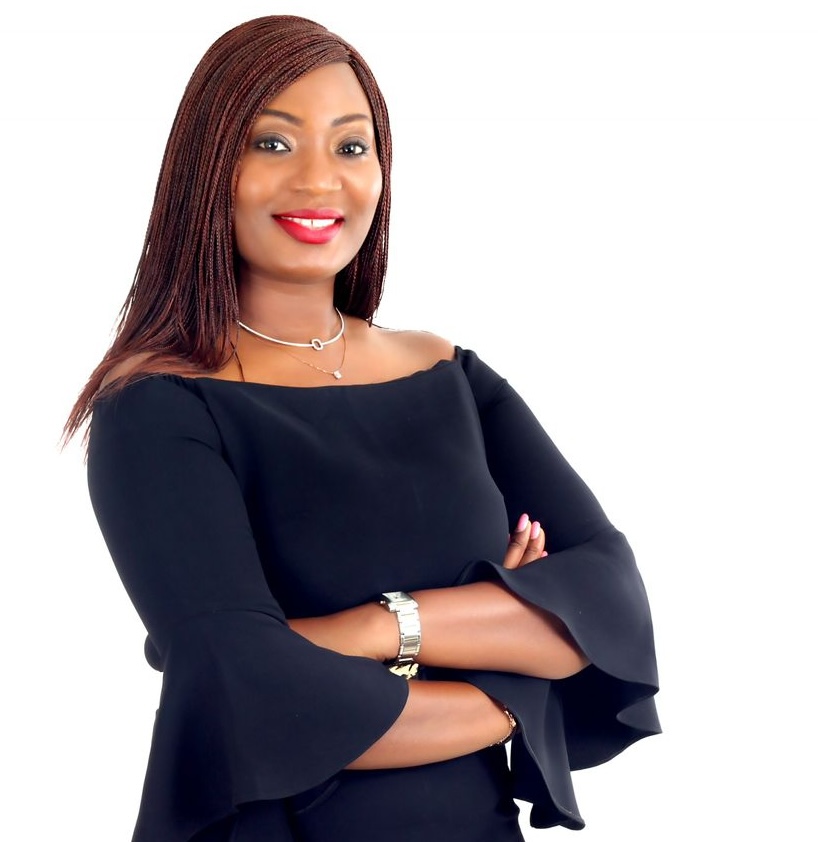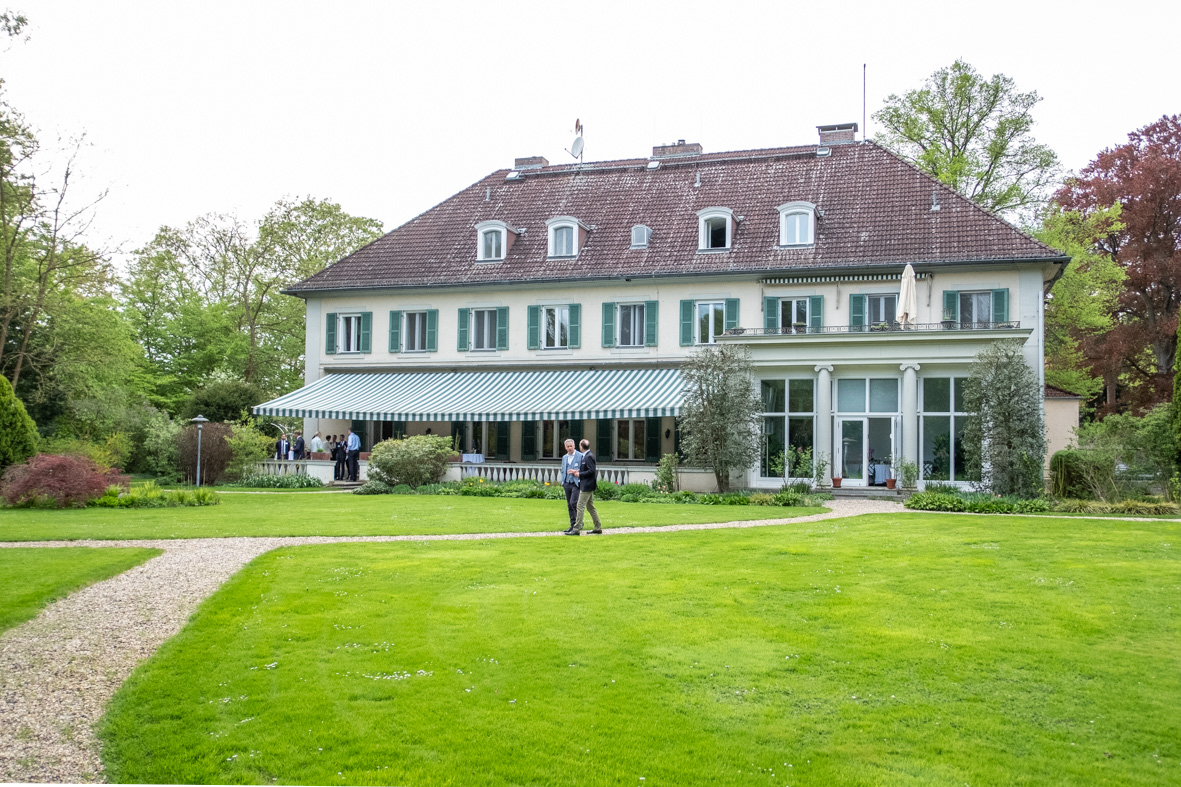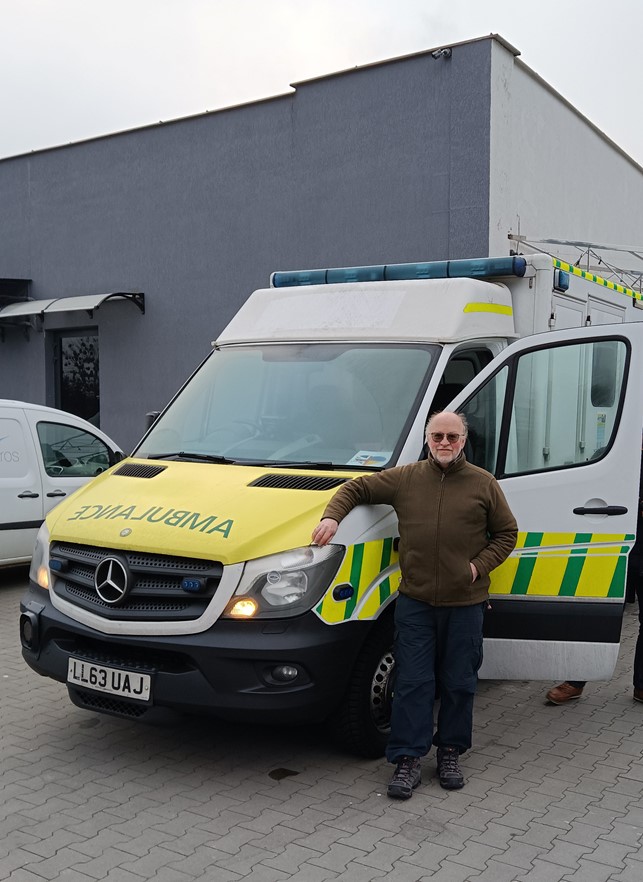Where can a STEM degree take you? We spoke to Old Member Dr Hassanatu B. Mansaray (DPhil in Inorganic Chemistry, 2007) whose multifaceted career draws on her problem-solving skills to drive social progress in Africa, and earned her an award for being one of the 100 Most Influential People of African Descent under 40.
How are you working to promote sustainable development and social progress in Africa?
As the CEO of HBM Advisory, I am deeply involved in promoting sustainable development in Africa. Our approach focuses on identifying and unlocking high-impact opportunities that bring about transformative results for communities. For instance, our work in infrastructure development transcends the mere construction of roads and energy grids. We ensure that these projects, whether in the public or private sector, yield lasting social and economic benefits for citizens, such as improved access to quality education, healthcare, and markets for women and the youth.
My work with the Women in Science, Technology and Innovation (WoSTI) Foundation is a testament to my commitment to promoting social progress in Africa. We support girls and young women in STEM, equipping them with the skills needed to drive future progress. My vision for Africa is one of inclusivity, where every citizen, particularly women, actively participates in shaping our Continent’s future. I see a future where Africa is a global leader in sustainable development and innovation, and I am dedicated to making this vision a reality.
My vision for Africa is one of inclusivity, where every citizen, particularly women, actively participates in shaping our Continent’s future.
What drives you in your work?
As CEO, my goal is to help African businesses and governments navigate an ever-changing global landscape with innovative and sustainable solutions. What truly drives me is the opportunity to create long-lasting value that uplifts communities and empowers individuals. I deeply believe in the potential of African economies but equally in the importance of aligning growth with sustainability and social progress to improve the quality of life of people. Whether we’re advising on national development strategies, investor relations, or developing risk management systems, the goal is always to push for solutions that deliver both economic and social returns, ensuring a responsible and balanced approach to development.
How do you bring together all the different strands of your work and operate effectively across many different areas?
My career is multifaceted, but I see it as a continuous thread where each role builds on the others. My background in Chemistry instilled precision and problem-solving skills, which I’ve applied in policy and strategy development, infrastructure projects, and business development. Whether working on national development plans or corporate strategies, I draw on my scientific rigour and development finance experience to approach challenges holistically, allowing me to see unique opportunities.
You held several roles at the African Development Bank Group for over a decade. What changes have you seen in Africa’s socio-economic landscape during that time?
During my time at the African Development Bank, I witnessed remarkable transformations in Africa’s socio-economic landscape. Over the past decade, Africa’s emerging economies thrived, the private sector expanded, and technological advancements surged, leading to a growing middle class until the COVID-19 pandemic disrupted this progress.
Despite the challenges in the last decade, the Continent has made significant strides in economic diversification and promotion of value addition across many sectors, including agriculture, mining, and renewable energy technologies, for global competitiveness.
Private sector involvement in infrastructure and social development has also increased, highlighting the need for strong policies to ensure inclusive growth.
Commitment to sustainable development has grown, evident in initiatives like the Climate Change and Green Growth Strategic Framework, which I helped develop. These changes showcase Africa’s expanding role on the global stage and its potential for leadership in innovation and sustainability, inspiring confidence in its future.
How did your DPhil in Chemistry and your work as a scientist prepare you for the work you do now?
My DPhil in Chemistry taught me to approach challenges with a methodical and analytical mindset, which has been invaluable in every role I’ve held since. Whether I’m formulating long-term corporate strategies or advising on policy development, the scientific method —hypothesis, testing, refining — guides my work. Chemistry also fostered a deep appreciation for innovation, and I’ve carried that with me into my roles in business and international development, always looking for new ways to solve problems. Moreover, science is inherently collaborative, and that has shaped how I approach leadership, fostering teamwork and open dialogue.
My DPhil in Chemistry taught me to approach challenges with a methodical and analytical mindset, which has been invaluable in every role I’ve held since.
In 2021 you received an award for being one of the 100 Most Influential People of African Descent under 40 in the Business and Entrepreneurship category. How did this make you feel and what advice would you give to others aiming high?
Receiving this award was both humbling and empowering. It validated the hard work and dedication that I’ve poured into my career, but more importantly, it reminded me of the responsibility we all carry to uplift others. My advice to others is to remain focused on their purpose. Success isn’t just about personal achievements — it’s about using your platform to make a difference in your community. Dare to DREAM BIG, but always stay grounded in how your work impacts the world around you.
Dare to DREAM BIG, but always stay grounded in how your work impacts the world around you.
What makes a good leader?
A good leader must have vision, but also the humility to listen and learn from others. Leadership, to me, is about empowering those around you and creating an environment where everyone can contribute their best. It’s also about resilience — knowing that challenges will come but having the determination and creativity to overcome them. Most importantly, a good leader must act with integrity, always considering the long-term impacts of their decisions on people, the environment, and society.
What is needed in a workforce to bring about positive and transformative change?
To bring about transformative change, a workforce needs diversity of thought, continuous learning, and a shared commitment to innovation. It’s also critical to cultivate a sense of ownership and purpose. When employees feel connected to the broader mission, whether it’s infrastructure development or sustainable business, their work becomes more than just a job — it becomes a driving force for positive change. At HBM Advisory, we place great emphasis on fostering a culture of growth and collaboration where everyone’s unique perspective and innovative ideas are valued and integral to our success.
What are your happiest memories of being at Queen’s?
Some of my happiest memories at Queen’s are of the quiet moments in the library, fully immersed in learning and reflection. The library’s history and beauty inspired me to think bigger and aim higher, and it was there that I began to envision using my scientific training to make a real-world impact.
The library’s history and beauty inspired me to think bigger and aim higher, and it was there that I began to envision using my scientific training to make a real-world impact.
I also loved the MCR formal dinners, especially the year I was Social Secretary. The sumptuous meals and warm ambience were a welcome reward after long hours in the lab. I still miss the special “Bombe Alaska” dessert reserved for those special occasions.
Can you recommend a book?
The Bright Continent: Breaking Rules and Making Change in Modern Africa by Dayo Olopade offers an insightful and optimistic view of innovation and development across Africa, emphasising local ingenuity and adaptive solutions. Olopade’s work challenges traditional narratives about the Continent, showcasing how African communities are creatively overcoming challenges. It’s an inspiring read for anyone interested in sustainable development, as it highlights grassroots initiatives that can provide a model for impactful change.
A bonus read is The Innovator’s Dilemma by another Old Member of Queen’s Clayton Christensen (MPhil, 1975). It offers valuable insights into how even successful companies can fail if they don’t innovate.



